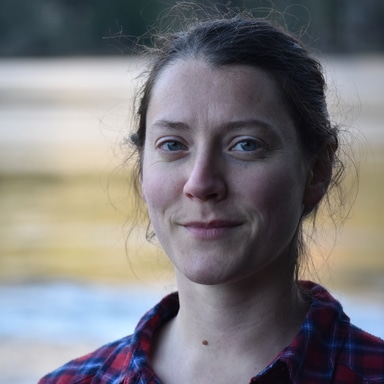Leigh holds degrees in English and Philosophy (University of York, UK, 2005) and Nutritional Therapy (University of West London, UK, 2011). She has been working as a medical writer since 2010 and in the natural health industry since 2006 and is the author of Eat to Beat Acne: how a plant-based diet can help heal your skin, as well as four novels.
As an active, athletic teenager who was also bookish, Leigh developed an early appreciation for the relationship between healthy food choices and both physical and mental performance. Her passion for nutrition, ethics, environmentalism, and food justice grew during her first degree and she soon made the switch to veganism. This was closely followed by the pursuit of a nutrition degree focusing on functional medicine.
During her second degree, Leigh began to see a big problem and an important challenge. The potential benefits of most nutrition research remained largely unrealized by the wider public. In fact, anyone interested in changing their diet to enhance their health had little chance of understanding most of the articles published in medical journals. Worse, those same individuals were the target for hypermarketed ‘health’ fads and dietary gimmicks with no sound basis in scientific fact.
Responding to this disconnect, Leigh began to carve out a career in health communications. “Evidence-based” remains her mantra and while she remains just as excited about amino acids and aromatic hydrocarbons as ever, Leigh also knows to quiet her inner nerd and instead talk about common household toxins and proteins.
Scientific breakthroughs are exciting, but if they remain the purview of a select few with specialized education, what good do they really do? Leigh is also mindful that, historically, medical research has largely ignored huge segments of the population, with disastrous consequences. Where it was once common practice to generalize the results of a small study looking at mainly healthy, young, white, men to all people, we now know that there are significant differences in how individuals respond to a variety of health interventions. One man’s cure really could be another’s poison.
This brings us to nutriepigenetics, the confluence of nutrition and genetics, two subjects ripe for misunderstanding, hyperbole, and manipulation, but also with the potential to dramatically enhance human health through personalized medicine. Nutrigenomics is where painstaking science rubs up against our daily lives, in the foods we eat, the supplements we take, and the steps we take to limit our exposure to environmental and household toxins.
We live in incredible times, where we have access to more information than ever before. Personal genetic testing gives us an unprecedented ability to take control of our own health, but only if we understand the information that is available and are able to trust its provenance.
Leigh believes that transparency, access to information, and clear communication are vital for great health and strong, resilient, compassionate communities. That’s why she is happy to work with John and colleagues at Gene Food to explore the latest science in nutrition and epigenetics.
Leigh also began building the ecoHome directory of non-toxic household and personal care products as part of Gene Food in 2018, which quickly turned into a much larger project worthy of its own internet home. Thus, LeafScore.com was born, where you’ll find deep dives into the potentially hazardous chemicals found in many common household items, from couches to cribs, yoga mats to toothbrushes and toothpaste.
When she’s not busy writing about nerdy medical things or studying, Leigh writes novels, short stories, and more. For more on Leigh’s current writing projects and books, check out her personal website.
Leigh’s recent continuing professional development activities:
As something of an autodidact, Leigh has recently pursued further education in the field of nutrigenomics/nutriepigenetics, toxicology, and sustainability, and has completed numerous Coursera courses including:
- Chemicals and Health, from John Hopkins University
- The Circular Economy – Sustainable Materials Management, from Lund University
- Health Across the Gender Spectrum – from Stanford University
and, for fun:
- Dog Emotion and Cognition, from Duke University.

